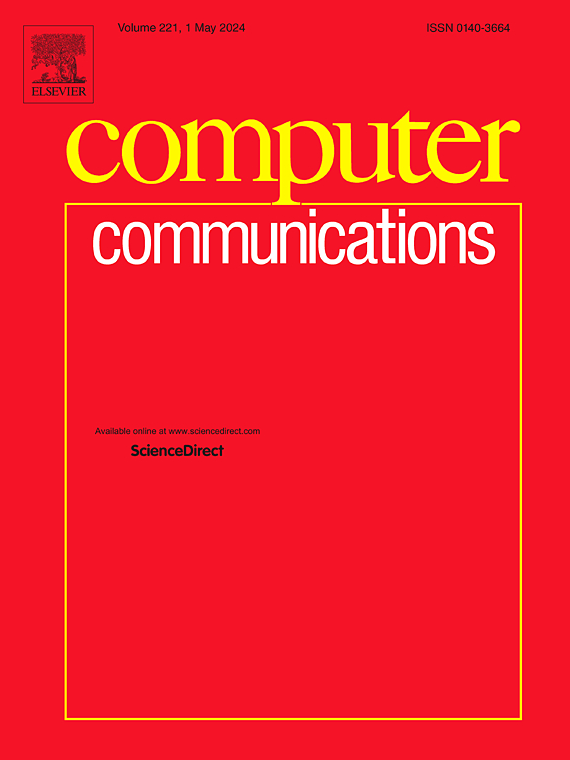Decentralized coordination for resilient federated learning: A blockchain-based approach with smart contracts and decentralized storage
IF 4.5
3区 计算机科学
Q1 COMPUTER SCIENCE, INFORMATION SYSTEMS
引用次数: 0
Abstract
Machine Learning (ML) in distributed environments increasingly deals with sensitive data (like healthcare or financial records) that cannot be centrally stored or processed due to privacy concerns. Federated Learning (FL) addresses this by enabling model training across decentralized devices, but faces significant challenges including system reliability, node failures, and trust issues among participants. Traditional FL approaches often rely on centralized coordinators, creating single points of failure and potential security vulnerabilities. This paper presents a novel approach to FL that leverages smart contracts, blockchain, and decentralized storage to enhance the traceability and reliability of the learning process. Our proposed system architecture is fully decentralized, eliminating single points of failure and promoting cooperation through a rewarding mechanism. Unlike previous approaches that neglect node fault tolerance, we introduce a smart contract based scheme for managing node failures and electing the aggregator node. The presence of the smart contract, executed on a decentralized permissioned blockchain, provides reliability guarantees and eliminates the need for costly distributed algorithms in terms of message exchange. An experimental study is conducted to evaluate various aspects of the FL system. We present results related to the accuracy and effectiveness of the FL system on ML models. We also examine the performance related to the distribution of the weights of the ML model based on the use of IPFS. Furthermore, we analyze the performance of the smart contract in terms of gas consumption. Lastly, we investigate the impact of failures combined with incentive policies and aggregator election algorithms on the FL system. Our findings demonstrate the viability of the proposed approach, paving the way for more robust, reliable, and efficient FL systems.
弹性联邦学习的去中心化协调:基于区块链的智能合约和去中心化存储方法
分布式环境中的机器学习(ML)越来越多地处理由于隐私问题而无法集中存储或处理的敏感数据(如医疗保健或财务记录)。联邦学习(FL)通过支持跨分散设备的模型训练来解决这个问题,但面临着包括系统可靠性、节点故障和参与者之间的信任问题在内的重大挑战。传统的FL方法通常依赖于集中式协调器,从而产生单点故障和潜在的安全漏洞。本文提出了一种新的FL方法,利用智能合约、区块链和分散存储来增强学习过程的可追溯性和可靠性。我们提出的系统架构是完全去中心化的,消除了单点故障,并通过奖励机制促进合作。与之前忽略节点容错的方法不同,我们引入了一种基于智能合约的方案来管理节点故障和选择聚合器节点。智能合约的存在,在一个分散的许可区块链上执行,提供了可靠性保证,并消除了在消息交换方面对昂贵的分布式算法的需求。进行了一项实验研究,以评估FL系统的各个方面。我们给出了与FL系统在ML模型上的准确性和有效性相关的结果。我们还研究了基于IPFS使用的ML模型的权重分布相关的性能。此外,我们从天然气消耗的角度分析了智能合约的性能。最后,我们研究了失效与激励政策和聚合器选举算法相结合对FL系统的影响。我们的研究结果证明了所提出方法的可行性,为更强大、可靠和高效的FL系统铺平了道路。
本文章由计算机程序翻译,如有差异,请以英文原文为准。
求助全文
约1分钟内获得全文
求助全文
来源期刊

Computer Communications
工程技术-电信学
CiteScore
14.10
自引率
5.00%
发文量
397
审稿时长
66 days
期刊介绍:
Computer and Communications networks are key infrastructures of the information society with high socio-economic value as they contribute to the correct operations of many critical services (from healthcare to finance and transportation). Internet is the core of today''s computer-communication infrastructures. This has transformed the Internet, from a robust network for data transfer between computers, to a global, content-rich, communication and information system where contents are increasingly generated by the users, and distributed according to human social relations. Next-generation network technologies, architectures and protocols are therefore required to overcome the limitations of the legacy Internet and add new capabilities and services. The future Internet should be ubiquitous, secure, resilient, and closer to human communication paradigms.
Computer Communications is a peer-reviewed international journal that publishes high-quality scientific articles (both theory and practice) and survey papers covering all aspects of future computer communication networks (on all layers, except the physical layer), with a special attention to the evolution of the Internet architecture, protocols, services, and applications.
 求助内容:
求助内容: 应助结果提醒方式:
应助结果提醒方式:


